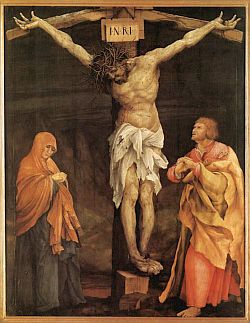 I came of age in the late 1970s. Amy Grant’s song “1974” was for me closer to January 1977, but the sentiment was the same. My spiritual life up to that point reflected the influence of the Jesus People Movement (JPM) that began in the late 1960s and eventually faded away by 1979. The Lutheran Church I was raised in channeled some of the movement and had even begun to change its musical styles for youth before the JPM hit, incorporating folk-styled worship songs that emerged from Roman Catholic youth revivals that erupted post-Vatican II.
I came of age in the late 1970s. Amy Grant’s song “1974” was for me closer to January 1977, but the sentiment was the same. My spiritual life up to that point reflected the influence of the Jesus People Movement (JPM) that began in the late 1960s and eventually faded away by 1979. The Lutheran Church I was raised in channeled some of the movement and had even begun to change its musical styles for youth before the JPM hit, incorporating folk-styled worship songs that emerged from Roman Catholic youth revivals that erupted post-Vatican II.
So when Christianity Today magazine named God’s Forever Family: The Jesus People Movement in America by Larry Eskridge its book of the year, I snapped it up and immediately started reading. A historical overview of the Jesus People Movement, the book traces the movement’s rise among Haight-Ashbury hippies in San Francisco circa 1968, covers the establishment of countercultural Christianity across the country, looks at Christian communes, notes predatory pseudo-Christian cults that arose alongside the movement, discusses the genesis of Contemporary Christian Music, and concludes with how the JPM changed the American Church.
For Christians who came of age in the late 1960s and 1970s, I’d call it a must read. You might even see people you know discussed in the book. (I know I was surprised to see a pastor of a church I formerly attended named in the acknowledgments as a contributor of material and background info.) The story Eskridge lays out for readers has a bittersweet taste for those of us who recall those innocent days and wish the best parts of that JPM mentality had not gone missing from the modern American Church.
For those too young to remember the 1970s, God’s Forever Family serves as a history to explain why the Church today looks and acts like it does, for good and for ill. I even learned a few things. I did not know the Full Gospel Business Men’s Fellowship graciously bankrolled many of the most influential JPM ministries, or that Pat Robertson had a hand in establishing and legitimizing Christian rock music. The history depicted in God’s Forever Family will help make sense of contemporary evangelicalism and may de-vilify Christian leaders and their ministries that started with good intentions but somehow went off course or moved the entire Church in a direction that has not best served the Lord. In the pages of this book, we see how good intentions sometimes lead to less than ideal outcomes.
I won’t offer a review of the book other than to say I wish author Eskridge had delved deeper into more of the issues closest to my heart. But as an overview, it’s essential reading, covering a tumultuous era, the movement it spawned, and the impact it still has today. The JPM has been forgotten in recent years, so a contemporary revisit is most welcome.
The best Christian book published in 2013? Whether it is or not, you would do well to read it.


 With Holy Week now concluded, I was pondering what appears to be the demise of the local Good Friday service in my community. It used to be that the local churches near my little town would combine to host a Good Friday service, but I heard nothing about it this year. The large (for our area) Pentecostal church of which I am a member does not hold its own Good Friday service, but we did host the traveling community service now and then.
With Holy Week now concluded, I was pondering what appears to be the demise of the local Good Friday service in my community. It used to be that the local churches near my little town would combine to host a Good Friday service, but I heard nothing about it this year. The large (for our area) Pentecostal church of which I am a member does not hold its own Good Friday service, but we did host the traveling community service now and then.